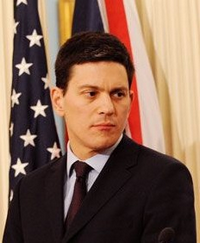BRUSSELS, Belgium -- With Czech approval of the Lisbon Treaty removing the last obstacle for the treaty's ratification, a race in Brussels has begun between the European Commission and the European Council to secure influence over the new European External Action Service (EEAS).
The new body is among the institutions introduced by the treaty, and reflects the European Union's attempt to integrate its foreign policy departments. It will combine tasks currently undertaken by the Commission's Directorate General of External Relations and the institutions of the Council Secretariat in charge of foreign policy. The integration of elements from the Commission and the Council is causing tensions over who will control the future service.
The Commission is the EU's supranational body representing the "community principle," while the Council is the intergovernmental entity where national governments are represented. The EU has always experienced a latent rivalry between the two institutions, a rivalry that is now coming to the surface due to the reforms prescribed by Lisbon.

